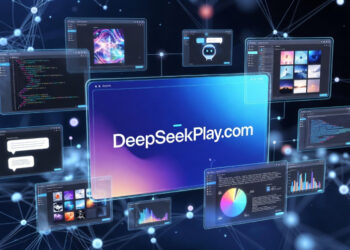Continuous Integration and Continuous Supply, also known as CI/CD tools, are methods that guarantee to speed up the delivery of software-as-a-product by assisting businesses in becoming more agile. The software development process is automated by CI/CD, which reduces the delivery time from months and weeks to days and hours.
Continuous Integration and Continuous Delivery are two separate stages in the software development lifecycle, despite being mentioned in the same sentence. So let’s quickly define CI-CD before delving deeper into the top 10 CI-CD tools to master in 2021.
Continuous Integration (CI) and Continuous Delivery (CD) (What Is CI/CD?)
CI/CD can have a favorable effect on a business’s bottom line. Because of this, enterprises all around the world are progressively adopting it as a standard agile practice.
Continuous Integration
Constant code integration into the codebase is a component of continuous integration. Small integrations should be made regularly since they tend to have fewer unintended consequences than larger code alterations. With no human involvement, build automation checks all integrations for faults.
Continuous Delivery
Bug patches, UI improvements, and feature upgrades are all examples of minor, regular software changes that are deployed using the continuous delivery (CD) technique. In essence, Continuous Delivery begins where CI leaves off. In essence, the CD consists of Continuous Integration code deployment, testing, and staging. While CD is entirely an operational approach, CI is a developer practice.
10 Best CI-CD Tools to Learn in 2022
In the past few years, a number of CI-CD products have entered the market in response to the increased use of agile principles. This frequently leads to confusion and makes it challenging for a budding software engineer to select the best CI-CD tools to master for professional advancement. Unthinkable has shortlisted the top 10 CI-CD tools that you must master in 2022 in this list of CI-CD tools to make the choosing process easier.
1. Shippable
Shippable, created by market-leading software company Jfrog, is one of the top CI-CD technologies that DevOps engineers can use to produce regular, fault-free software releases with predictability. The automation platform from Shippable, which supports Docker, makes it easier to create, test, provision, and deploy apps from any location at any time.
HipChat, Slack, Kubernetes, Google Container Engine, Amazon ECS, Docker, Bitbucket, GitHub, Nose, xUnit, JUnit, Cucumber, and other well-known tools are just a few of the platforms with which the top-notch CI-CD tool connects without difficulty. The SaaS version of Shippable can be installed on a public cloud, while the Server version can be installed on either a self-hosted infrastructure or a private cloud.
2. GitLab CI
GitLab CI, one of the best CI-CD tools, is accessible on a variety of operating systems, including Windows, macOS, and Linux. Also, GitLab CI, which has a very user-friendly interface, incorporates Continuous Integration, Continuous Delivery, Code Reviews, and Continuous Deployment into a straightforward dashboard.
The time-saving caching technique of the widely used CI-CD tool is beneficial. Both within and across branches of the same tree, the cache can be shared. Additionally, caches can be disabled for particular tasks. GitLab CI is a fantastic tool to utilize since it lets users launch builds using the Shell Executor, much like terminal-based programs.
3. TeamCity
TeamCity, a free and open-source CI-CD solution created by JetBrains, enables seamless interaction with Jira Software, Azure DevOps, NuGet, Maven, Visual Studio Team Services, and Docker.
Also, TeamCity, a leading server-based CI CD pipeline solution for Java, executes parallel builds to give users the option of running builds concurrently across several environments. It is available on Linux and Windows.
4. Buildkite
Buildkite, regarded as one of the finest ci cd tools by programmers worldwide, enables developers to run scalable, quick, and secure pipelines on an on-premise platform.
Installing Buildkite on Docker, macOS, Linux, or Windows allows users to run jobs concurrently across several agents on a centralized platform, increasing visibility and enabling users to create custom tools using GraphQL APIs.
5. Codefresh
Codefresh, which was built on Kubernetes, provides complete support for GitOps and connections with popular programs like Slack, Puppet, Pulumi, Terraform, and GitLab.
Also, Codefresh gives programmers enhanced visibility, limitless scalability, and superior speed across a variety of platforms, including Azure, Amazon Web Services, and Kubernetes, thanks to an integrated Kubernetes Dashboard.
6. Semaphore
Developers may automate build, tests, and deployments on a variety of platforms, including macOS, Linux, and Android, using Semaphore’s configurable CI-CD pipelines for parallel and sequential builds.
Rust, Ruby, PHP, C#, Java, and Python are just a few of the many programming languages that Semaphore is compatible with. Users can utilize Semaphore’s Command Line Interface to quickly debug errors and gain insights into currently performing processes (CLI).
7. Bitrise
Bitrise has strong support for the vast majority of programming languages used in mobile app development. Including Flutter, Reactive Native, Ionic, Cordova, Objective C, Swift, and Kotlin. It can perform builds on Linux and macOS workstations.
Because of its cloud-based, mobile-first strategy, Bitrise is regarded. Is one of the top CI-CD systems and is free to use for open-source projects. And individual mobile application developers. The best CI-CD tool offers an Enterprise Build Platform. Called Bitrise EBP, though, for businesses looking for high availability. Cutting-edge security, and flexibility.
8. AutoRABIT
One of the few CI-CD products that provide tailored solutions for the Salesforce platform is AutoRABIT. AutoRABIT might be an excellent option for people seeking the best CI-CD tools that offer scalable. And the customized output for Salesforce’s platform.
AutoRABIT can save users the extra work required to integrate Salesforce-oriented solutions into their systems. By providing an interactive, user-friendly interface. And supporting over 120 different metadata types.
9. Strider
One of the most widely used CI-CD solutions, Strider uses MongoDB as its database storage structure. And implements in JavaScript and NodeJS. It supports a wide variety of popular languages, including Ruby, NodeJS, and Python.
To get notifications, users can combine Strider with strong technologies like Bitbucket, Heroku, GitHub Enterprise, GitLab, GitHub, and Slack. Additionally, Strider’s integrated plugins make it simple to adapt and expand a variety of capabilities.
10. Jenkins
Jenkins is an open-source, cross-platform, Java-based application. It is one of the top continuous integration. And delivery systems are available today. It enables users to test and report in real-time.
Jenkins is simple to use and offers seamless interaction with popular cloud services. Including Azure, Google Cloud, AWS, and DigitalOcean. Developers can use a collection of helpful tools from its CICD pipeline to model. And implement using a domain-specific language.
Why You Should Learn Jenkins Before Mastering Other CI-CD Tools?
When it comes to upending the software development ecosystem. Jenkins has been one of the most exciting technologies in recent years. It is gradually becoming a necessary tool for Java programmers and DevOps experts in the DevOps and Agile fields.
The world’s top online Bootcamp and certification provider. Simplilearn enables you to learn Jenkins from the convenience of your home. And receive an industry-recognized certificate in the Internet age.














